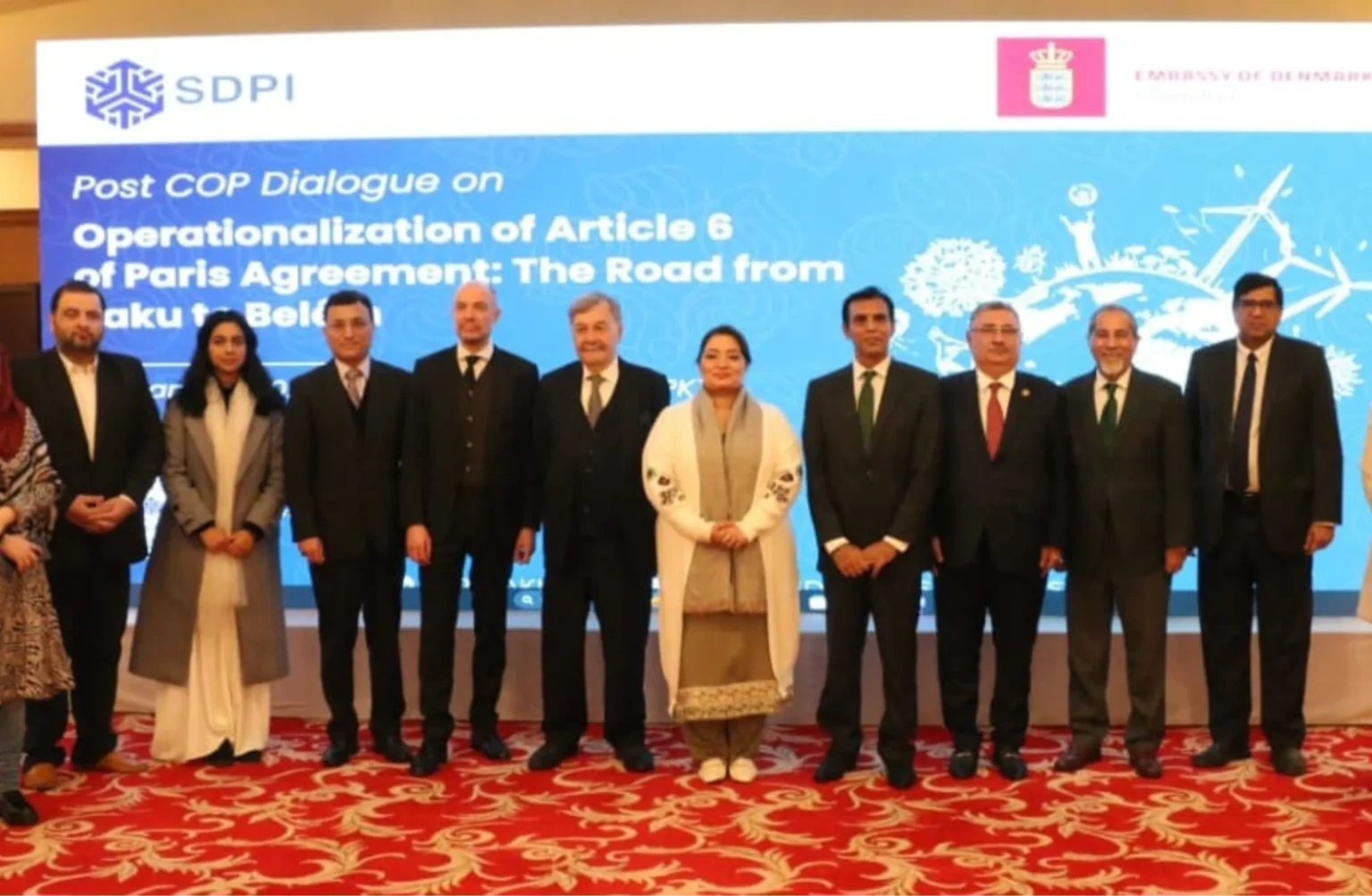Islamabad, Jan 9: Pakistan is positioning itself to become a regional leader in carbon trading and climate resilience, with Prime Minister’s Coordinator for Climate Change and Environmental Coordination, Romina Khurshid Alam, emphasizing the nation’s readiness to adopt international carbon trading guidelines.
During a seminar in Islamabad organized by the Sustainable Development Policy Institute (SDPI) in collaboration with the Embassy of Denmark, Alam highlighted the significance of Article 6 of the Paris Agreement. This provision allows countries to engage in international carbon markets, facilitating the trade of carbon credits to meet climate targets.Alam stated, “Article 6 presents an opportunity to set off carbon markets and lay the foundation for sustainable development and enhanced resilience.”
She commended Pakistan’s efforts during COP29 in Baku, where the country unveiled its Carbon Market Policy, marking a significant step toward operationalizing Article 6.The policy guidelines set a clear regulatory framework for the creation and governance of both voluntary and compliance carbon market activities in Pakistan, aligning with international requirements and good practices.
Alam acknowledged the challenges Pakistan faces, including capacity constraints and regulatory shortcomings, but emphasized the unique opportunities in sectors such as forestry and renewable energy.She stated, “We are collaborating with provinces and legislative assemblies to operationalize Article 6 and integrate grassroots participation in carbon trading initiatives.”
The Danish Ambassador to Pakistan, Jakob Linulf, underscored the collaborative role of Denmark and SDPI in creating an appropriate environment for climate action.He noted, “Denmark is proud to work closely to help Pakistan attract foreign investments in addressing climate change.”
Dr. Abid Qaiyum Suleri, SDPI Executive Director, highlighted the need for transparency and robust monitoring in carbon markets.He emphasized the importance of establishing independent accreditation bodies and aligning with international frameworks like the Carbon Border Adjustment Mechanism (CBAM).
Zulfiqar Younas of the Ministry of Climate Change (MoCC) announced the launch of a customized carbon registry by February, marking a key milestone in operationalizing Article 6. The registry aims to facilitate transparent carbon credit trading, enabling Pakistan to tap into international carbon finance markets.
The seminar also highlighted Pakistan’s progress in leveraging COP29 outcomes. The €20 million SPAR6C initiative, funded by the German government, is preparing Pakistan and other countries to implement Article 6 through project development in green energy, transport, forestry, and waste management. Ahsan Karman, a senior consultant and member of the Climate Change Authority, announced the preparation of 13 project ideas in collaboration with provincial governments.
Andrew Bailey, Managing Director of BASF and representative of the Overseas Investors Chamber of Commerce and Industry (OICCI), reiterated the chamber’s commitment to supporting Pakistan’s climate action goals.He emphasized that the private sector remains a critical partner in achieving carbon neutrality.
Through these collaborative efforts, Pakistan aims to establish a robust carbon market framework, attract international investments, and contribute significantly to global climate change mitigation and adaptation strategies.
